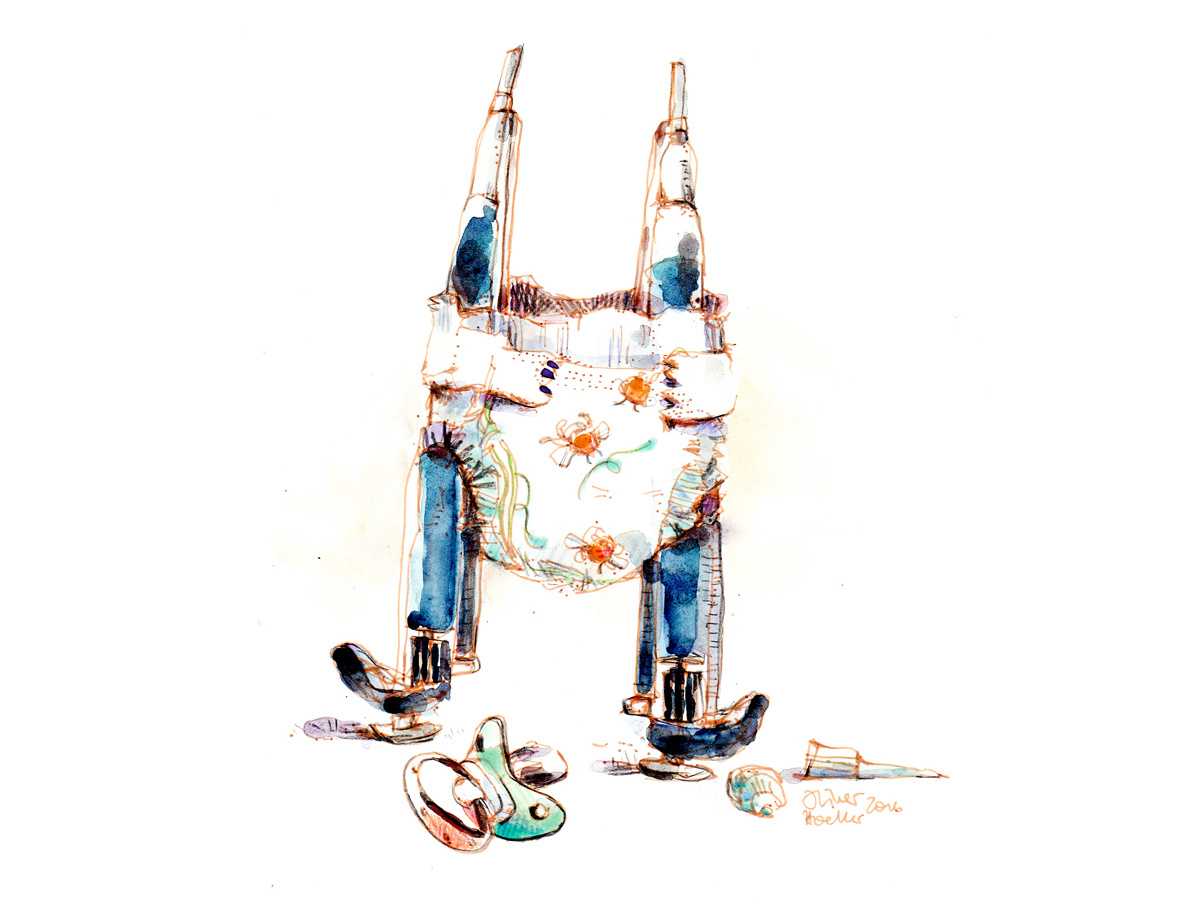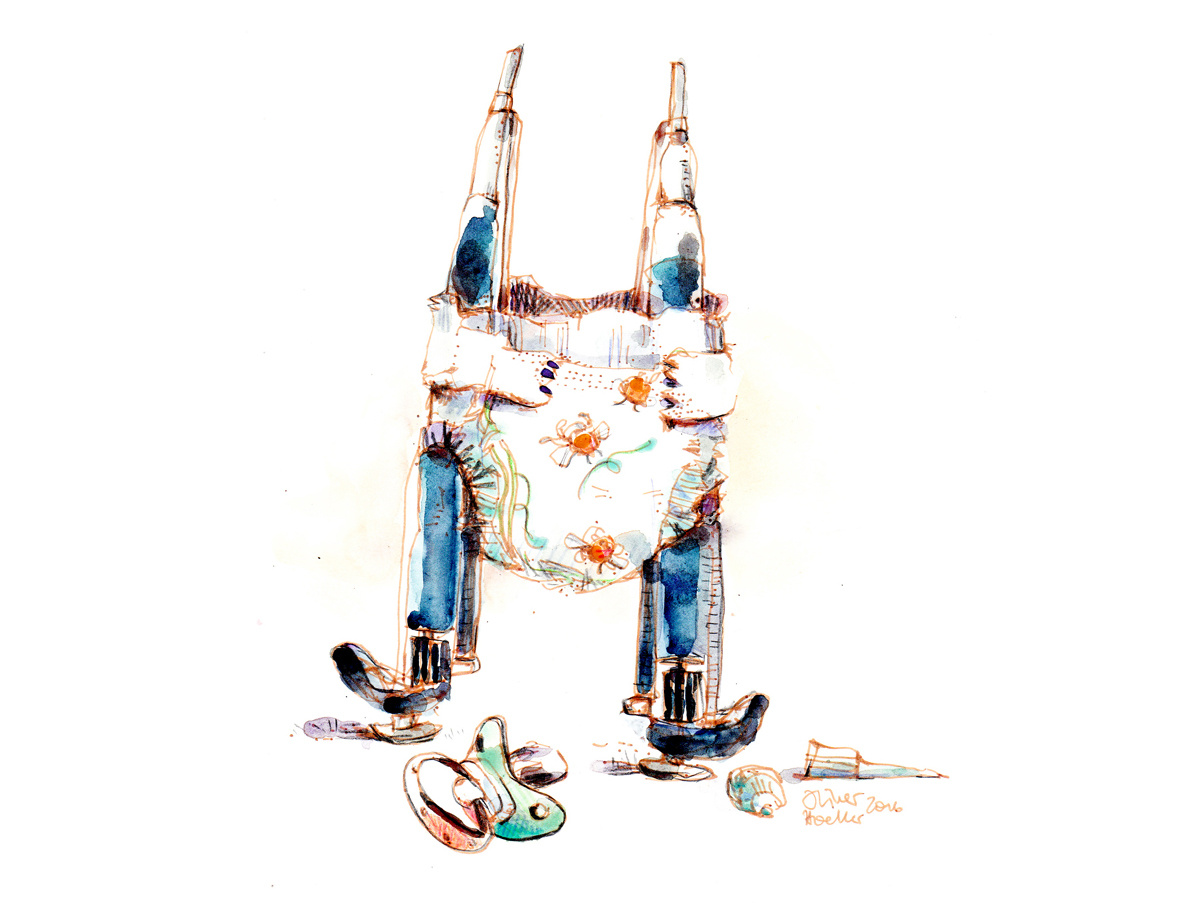

It’s a scenario that’s all-too-familiar to many scientists. Your career – be it in academia, industry, publishing, communication, or something else – is gradually progressing when you and your partner decide to start a family.
But what do you do once the new addition has arrived? And what impact will the arrangement have on your career, and that of your partner? Total Internal Reflection has collected some accounts from science parents around the world:
Porky and Petunia recently relocated to Germany, where their son Porky Jr.(now 14 months old) was born. Porky is a junior group leader at a university department and has been working part-time (20h/week) for the last 6 months to help with childcare; Petunia resigned her job at a pharma company after completing maternity leave and is now looking for a new job. Porky Jr. has been at the university creche since he turned one year old, and currently stays there for 20h per week; this will rise to 30h/week in September. The level of state support has been a huge financial help. Both Porky and Petunia miss full-time work, but are unsure how best to balance this with spending enough time with Porky Jr.
Donald and Daisy live in the USA; their son Huey is now 14 months old. Daisy works as a staff scientist at Berkeley and enjoyed a couple of months off in maternity leave – a quite generous allocation by US standards. When Donald‘s postdoc contract ended, they switched places and Donald stayed with Huey at home. Huey now attends childcare 3 days a week and has a very good time playing with the other 5-6 kids there. This arrangement costs a hefty ~ $1000/month, but Donald and Daisy really value the flexibility that this buys. Daisy works 5 days a week in the lab, Donald now works 3-4 days a week freelance on illustration and (web)design (scientific and other). Donald looks after Huey all day for 2 days a week; weekends mean some family time together. Their verdict on the arrangement: pros – work/life balance; cons – some uncertainty about the future.
Coral and Marlin both pursue a career in science at the level of group leader. Currently they work 400km apart in different countries, both doing full time hours. Their son Nemo (3 years) goes to daycare for 30h/week. Coral and Marlin both work from home one day a week to spend the afternoon with Nemo. This means shifting the remaining work hours to the evening or weekend. Marlin commutes on a weekly basis (leaves early Monday morning, returns Thursday night). This scenario only works because both sets of grandparents and an aunt take turns to pick up Nemo from daycare for the other three days of the week and look after him until 6pm. They also help in case of sickness or in the rare events when Coral and Marlin are both at a conference at the same time. Coral and Marlin are very happy with the arrangement and appreciate the considerable help from their wider family. However, they worry about the long-term effect on the family core of them not being together all the time. Unfortunately, they will have to move again soon for career reasons and it is unclear how this can be achieved in a way that accommodates everyone’s needs.
Wendy is 40 and working as a junior group leader at a university department, on her second three-year contract. Her small group consists of a PhD student and occasional Masters or Bachelor students. Her husband Peter now works as a social worker with 15 hours a week in shifts, including weekends. He also carries out some voluntary work. Their son George is almost 3 and attends a creche daily from 9am to 3pm, (until 2pm on Fridays). Their daughter Mary is 3.5 months old. Wendy will be at home for one more month and then work part-time for another 4 months. After that, Peter will stay at home until Mary can start attending kindergarden when she is one year old. Wendy has never really stopped working, and is using every moment Mary sleeps to work from home. Nonetheless writing papers is really hard, as the slots that she can work in are very short and are dictated by Mary‘s sleeping pattern rather then when she feels productive. Wendy often feels that she’s neglecting both her children and her work, not to mention herself. However, she has a family to feed, is still on short-term contracts with an unknown future, and therefore feels that she cannot really afford to spent more time with the children.
Woody and Bo Peep live in Austria and have two children – Jessie (2 years) and Buzz (9 months). Jessie was born when they were both postdocs in the same group at a research institute; the research group has since relocated to a different country. Woody took on a job as a senior scientist at the campus support facility, but this job was only funded for one year and he wanted a permanent position regardless of whether it was inside or outside academia. He was then offered a permanent position as a science editor (full time) at the same institute he did his postdoc. In the meantime, Bo Peep gave birth to their second baby, Buzz; she has not gone back to work since Jessie was born. Jessie started daycare (full time: 7:30-16:00) when she was just over 1.5 years old, one month before Buzz was born. Buzz will start daycare when he is 10 months old (20 hrs/week) to make it easier for Bo Peep to look for a job. Bo Peep has very much enjoyed being home with her kids for such a long time (it will be 3 years in total) and to be so close to them during the first year of their life and the amazing development that takes place. Woody has also taken paternity leave of 2 months for each child. This was only possible thanks to the generous Austrian child support system. Bo Peep will be looking for a position (ideally part time, to still be able to spend a lot of time with the kids) outside of science as she is hoping to find a secure position with long term stability. She worries that having been at home for such a long time it will not be easy to find a new job. For Woody, having children hasn’t affected his career greatly, as he had transitioned out of an academic career track before going on paternity leave for the first time.
Pepe and Penelope are currently in Austria and have a 19-month-old daughter, Fifi. Pepe is in the 7th year of his PhD but should finish soon. When Fifi was born, Pepe barely worked for the first 3 months and his motivation for science decreased. Penelope was on maternity leave for 8 months, but was also looking for a new job as the group she belonged to had relocated during this period. Fifi started day nursery when she turned 9 months and Penelope started a new job on a 20h/week contract. When Fifi turned 1 year old, Penelope increased her contract to 30h/week for financial reasons. Penelope feels as though she spends enough time with Fifi as she collects her at 16:00 latest from the nursery. It is different for Pepe however – he usually comes home at 18:30 and has only 1 precious hour to spend with their daughter. Pepe‘s scientific motivation has improved and he wants to finish his PhD and hopefully do a postdoc. The choice will be difficult however as he and Penelope favour countries near their homeland for family reasons.
Fry met his partner Leela while they were both doing a postdoc in the same group. They both had aspirations for a scientific career, and Fry got lucky with a tenured staff position. Leela continued on a postdoc position in another town until their first son, Zoidberg, was born, which coincided with the end of her last postdoc. She stayed home with Zoidberg for 16 months, after which she started a part-time position which ended with the birth of their second son, Nibbler. By this time Leela had decided not to pursue an academic career as she had seen what Fry had been through and didn’t like it much. She stayed with Nibbler until he was 11 months old, while Zoidberg continued at daycare with Fry handling the commute. When Nibbler turned 13 months Leela got a full-time position as a software developer, at which point both kids went to daycare full-time. Leela loves her job but also feels that there is not enough time for work or family. Fry feels the same way, often trying to get little things done in the late hours of the day. He enjoys working in the department and is happy overall with the university. The university offers 9 weeks of fully-paid parental leave for staff members which Fry took in both cases. The daycare is run by the university, is still very expensive but introduces both kids to a multicultural environment and is run by a dedicated staff. Fry‘s department head is incredibly understanding and still appreciates what he can contribute, despite his more restricted working hours. The New Zealand government provides a limited amount of parental leave – 14 weeks of up to $400 a week but only for people in employment, something Leela couldn’t get because her postdoc had ended within the given time. New Zealand is helping in other ways too. Midwives are paid by the government and give advice and support throughout pregnancy and birth, doctoral and dental visits are free for children under 5, and most vaccinations are free. Daycare is quite expensive but is possible with two full salaries. Fry feels it is important that Leela‘s career continued sooner rather than later, even if they miss time with the kids. They will always have the weekends…
These are just a few of the parenting paradigms out there (and a huge, huge thanks to all contributors for being so open).
(Originally posted on Total Internal Reflection - HERE)
For Part2 of this series, with more science and parenting stories, see HERE.





Join the FEBS Network today
Joining the FEBS Network’s molecular life sciences community enables you to access special content on the site, present your profile, 'follow' contributors, 'comment' on and 'like' content, post your own content, and set up a tailored email digest for updates.